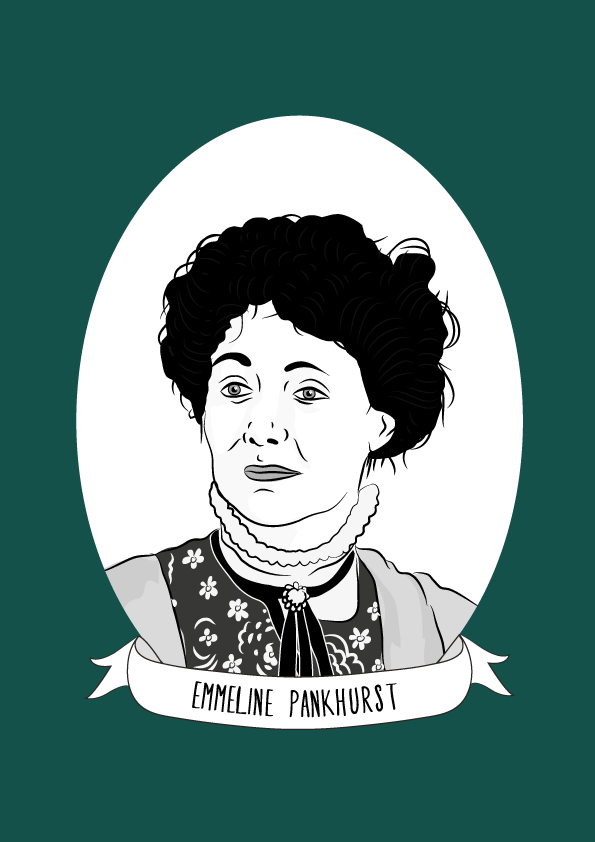Emmeline Pankhurst was a political activist and the leader of the British suffragette movement. She fought for the rights of women and used militant tactics never before associated with women to bring attention to women’s suffrage. Pankhurst fought for the vote for women with the belief that if women were able to vote they would be able to resolve social injustices like poverty. She challenged women’s social inequality and began a new era of the women’s movement.
Pankhurst was a member of many political groups. She founded the Women’s Franchise League which fought for suffrage (right of women to vote and to stand for electoral office) for married and unmarried women. She left the Women’s Franchise League and tried to join a local branch of the Independent Labour Party but was denied due to her gender. Later she was accepted to join them nationally and worked distributing food to those in poverty. She was appalled at the conditions in Manchester workhouses. She fought to change this and lead reform through the Board of Guardians. She left the ILP when they refused to focus on Votes for Women.
In 1903 she founded the Women’s Social and Political Union (WSPU) an all-woman organisation that claimed to be separate from political parties. Fed up with the lack of progress that speeches and petitions had made Pankhurst and her daughters were sentenced to prison multiple times for the militant and often destructive way they protested, While imprisoned they secured better conditions through hunger strikes.
During WWI Pankhurst called for an end to the militant suffrage activism and encouraged women to support the war effort by helping with industrial production. In 1918 the Representation of the People Act removed property restrictions on men’s suffrage and granted the vote to women over the age of 30 (with several restrictions). The act gave 8.4m women the right to vote. Pankhurst renamed the WSUP the Women’s Party and focuses on equal marriage laws, equal pay for equal work and equal job opportunities for women.
